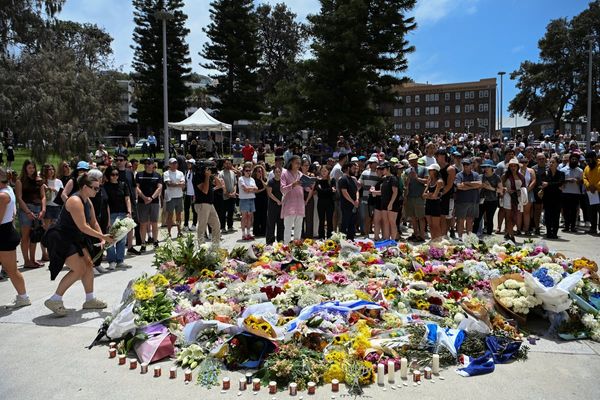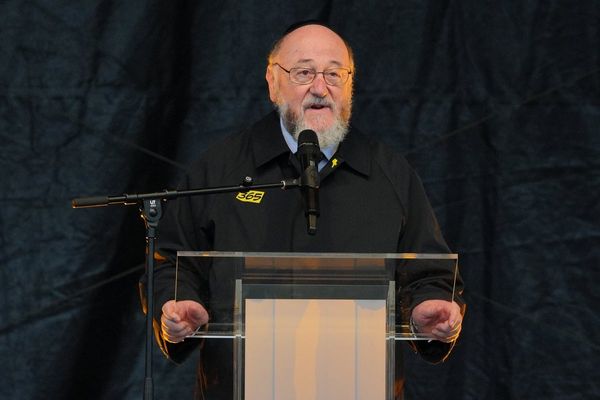
During his near-decade in power, as India has convulsed with sectarian riots, mass protests at government policies, or popular rage at heinous crimes, Narendra Modi has hewed closely to playbook: say nothing, and stay above the fray.
The Indian prime minister has never taken questions at a press conference in the country, declines interviews with critical journalists, and leaves daily commentary to his lieutenants or an army of online trolls. The grubby cut-and-thrust of electoral politics is for others; Modi instead is cast in loftier terms as the “messiah of the poor”.
Now, something close to a civil war in a north-eastern Indian state has dragged him down to earth.
On Thursday Modi was forced to give a rare address to India’s parliament to justify himself before a no-confidence motion, tabled by opposition lawmakers, who accuse the government of failing to quell months of violence in Manipur, a state on the border with Myanmar.
The prime minister won the vote easily – his ruling Bharatiya Janata party holds a large majority in parliament – but the opposition hopes that by dragging him into even talking about Manipur, it can begin to tarnish his self-styled saintly reputation.
Since May, fighting between the predominantly Hindu Meitei ethnic group and the Kuki, a mainly Christian ethnic group, has turned parts of the state into a warzone, forcing the closure of schools and workplaces, the restriction of the internet and the deployment of the Indian army with orders to shoot on sight.
For months, as dozens of people in Manipur were killed, tens of thousands displaced, and state armouries looted of automatic weapons, Modi stayed silent.
“His primary fear is to be linked to failure,” says Sushant Singh, a senior fellow at the Centre for Policy Research, a thinktank in Delhi. “Things that do not reflect well on him or his government, he avoids them.”
Then, last month, an appalling video surfaced that changed Modi’s calculations.
It showed two Kuki women being stripped naked, paraded by a large crowd of men and groped as they were dragged towards a field, where they were allegedly gang raped. “If you don’t take off your clothes, we’ll kill you,” men can be heard telling the women.
The footage quickly spread across Indian social media, shocking a country that earlier had been content to overlook the violence in a state nearer to the capitals of Nepal, Bhutan and Bangladesh than to Delhi.
“It actually shook the conscience of a large number of people in the country and, in the Indian heartland, people have been able to see that those in these far-flung north-eastern states are, too, humans of flesh and blood,” says Nilanjan Mukhopadhyay, a journalist and the author of a Modi biography.
In brief remarks the day after the video emerged, Modi vowed the perpetrators would be held accountable, without elaborating on the wider violence roiling Manipur. “Action will be taken according to the law,” he said at the time. “What happened to the daughters of Manipur can never be forgiven. As I stand next to this temple of democracy, my heart is filled with pain and anger.”
In the weeks since, India’s opposition parties – which recently set aside their differences and united in an effort to oust Modi in next year’s national elections – have continuously raised the chaos in Manipur. Late last month, they succeeded in bringing the no-confidence motion that finally forced the prime minister to address the issue on Thursday afternoon.
His reluctance to do so was clear: Modi spoke for 93 minutes before he raised the collapse of law and order in the state. “To the women of Manipur, I want to say that the country is with you, this house is with you,” he said. “We will all together find a solution to this problem and establish peace once again.”
The opposition hope the spectacle will force Modi to own the issue, and may open the door in voters’ minds to the idea that the prime minister is also responsible for other things that may trouble them, including the high price of milk, fuel and other staples, surging unemployment and increasingly brazen anti-Muslim violence.
“Manipur has become part of an effective political narrative for the opposition,” says Asim Ali, a political analyst based in Delhi. “A shorthand for communicating the incompetence and callousness of the Modi administration.”
Whether their strategy succeeds is another question. Voting in national elections will not begin for at least seven months. The latest polls suggest the BJP maintains a commanding lead. But, one by one, the campaign messages at the prime minister’s disposal are dwindling, Singh says.
“It is very difficult for Mr Modi to campaign on national security issues at this point, because of the crisis at the border with China,” he adds. “Similarly, it will be very difficult for him to campaign on [his slogan of] ‘double-engine governance’, when that is clearly not happening.”







